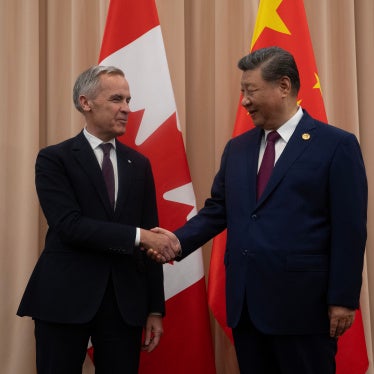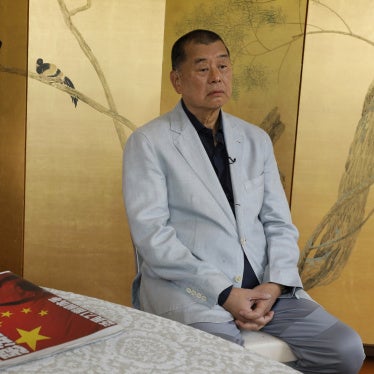(Washington, DC) - Secretary of State Hillary Clinton's speech on internet freedom today, in which she said the US will devote the "diplomatic, economic, and technological resources necessary" to press for internet freedom, could have broad implications for human rights online, Human Rights Watch said.
"Secretary Clinton has elevated internet freedom to a key US priority by confronting governments that censor online speech and supporting companies that stand up for human rights," said Arvind Ganesan, business and human rights director for Human Rights Watch. "The challenge now will be to put these goals into practice by incorporating internet freedom into diplomacy, trade policy, and meaningful pressure on companies to act responsibly."
In her speech today, Clinton recognized that an open internet is not just a matter of human rights, but integral to economic development and political stability, Human Rights Watch said. She criticized online censorship by allies and major trade partners, such as Saudi Arabia and China, and condemned governments, such as Egypt, for arresting bloggers. She also called on the Chinese government to investigate and publicly explain cyberattacks on Google that were disclosed last week. She articulated the administration's efforts to mobilize diplomacy, technology, responsible companies, and civil society to press for internet freedom.
"Censorship should not be in any way accepted by any company from anywhere," Clinton said in her speech. "And in America, American companies need to make a principled stand." She also said that the "private sector has a shared responsibility to help safeguard free expression. And when their business dealings threaten to undermine this freedom, they need to consider what's right, not simply the prospect of quick profits."
She also highlighted the Global Network Initiative (GNI), an effort by Microsoft, Google, Yahoo, human rights organizations, academics, and investors that obliges companies to protect freedom of expression and privacy online.
Human Rights Watch said the Obama Administration can take several steps to make this effort effective. US diplomats should regularly press their counterparts to eliminate online censorship.
The administration should also ensure that all government agencies work to combat censorship. The Commerce Department or the US Trade Representative (USTR) should call for an open internet in the course of commercial diplomacy and trade negotiations, for example. And future US trade agreements should have provisions to protect freedom of expression online, comparable to labor protections.
The US should also consider examining US export control laws to determine whether certain technologies need to be better regulated to ensure that governments do not use them to censor their critics, Human Rights Watch said. One opportunity to examine export controls will come under the Victims of Iranian Censorship Act, which requires the US government to issue reports to determine whether non-Iranian companies may have provided surveillance or censorship technologies to the Iranian government.
Finally, the US should go beyond a "principled stand" and actually require companies to demonstrate that they have policies and procedures in place to protect human rights online as part of any government cooperation or support for their efforts, Human Rights Watch said.
"This is an important opportunity to push back against governments who want to censor and conduct surveillance on individuals around the world," Ganesan said. "We hope this opportunity to promote internet freedom will not be squandered."








